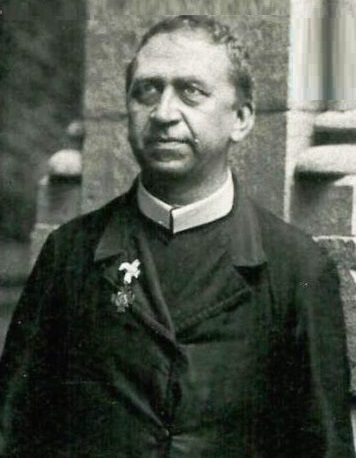Argentina dedicates a street to Father Grote CSsR, founder of the Círculos Católicos de Obreros (Catholic Workers’ Circles)
The street is located in the popular neighbourhood of the city, Álvarez Guerrero, in honour of the social commitment that Father Federico Grote had with the Catholic Circles of Workers of the country.
The city of Viedma dedicated a street to the Fr. Federico Grote, who in 1892 founded the Círculos Católicos de Obreros and was an iconic figure of the Christian social movement at the beginning of the 20th century. It is located on 109th Street in the Álvarez Guerrero neighbourhood.
The act of imposition of the new name, in the vicinity of the church San Juan Bautista, was attended by the president of the Argentine Federation of Catholic Circles of Workers (FCCO), Leandro Rago; the general secretary of the Governing Board, Daniel Del Cerro; the head of the Circle of Viedma, Gerardo Pazos; the councillor Silvana Cullumilla, author of the project of the ordinance that had unanimous favourable opinion, and councillors of the officialism and the opposition, civil authorities and neighbours of the neighbourhood.
Its protagonists recounted their experiences on Radio Grote, the digital radio of the Círculos Católicos de Obreros: “Father Grote spoke of the material and spiritual well-being of the worker in health, education and culture, and he created a focus at the headquarters so that it would also be a reflection of where to go”, commented Leandro Rago.
In this sense, he said that “Federico Grote Street is in a new neighbourhood of Viedma, a humble settlement that shows that Grote is always with the most needy, and the moment when the street sign was unveiled was very emotional. In addition, a plaque was placed inside the nearby church to commemorate the life and work of Father Grote. All the board of directors and members of the Círculo de Viedma were present and celebrated this happy moment”.

Father Frederick Grote was a Redemptorist priest of German nationality, born in Münster (Westphalia, Germany) on 16 July 1853.
In 1884, at the age of 31, he arrived in Buenos Aires. His only ambition at that time was the popular missions. As he went about his missionary work, he became more aware of the religious and temporal problems of his surroundings.
In 1891 the encyclical Rerum Novarum was published, the Church’s unprecedented response to the social question. For the first time, through Pope Leo XIII, the thinking that had been developed over centuries was expressed, pointing to the primacy of man over things, and therefore of labour over capital.
Faced with this announcement, Frederick Grote understood what he had to do, and nothing could stop him: to set up a Workers’ Circle, like those in Europe, but adapted to the environment in which he was living. It was to have a wide range of membership, to be an open-door institution, not only in terms of welcoming everyone without distinction of religion but also without distinction of social class.
(aica.org, 5 November 2021)






